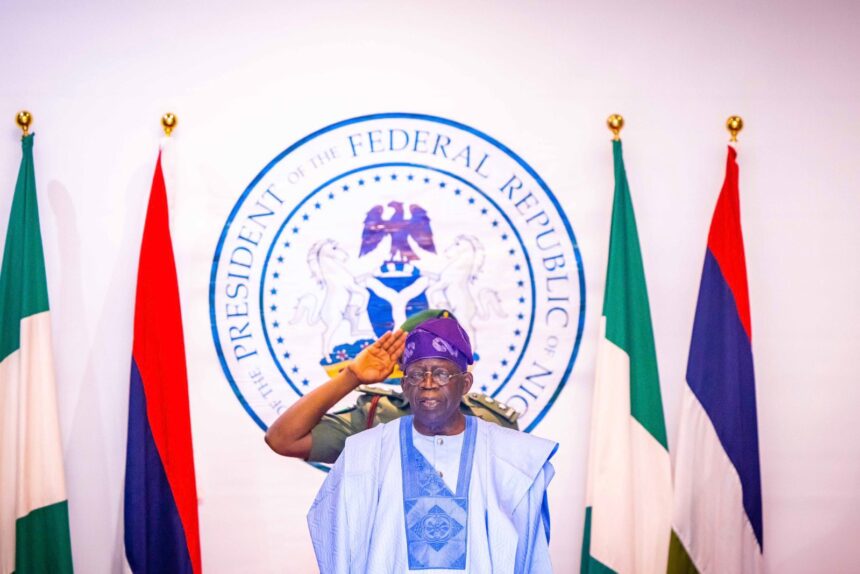The Nigerian Government has issued a formal response to the recent imposition of a U.S. 14% tariff on Nigerian exports, saying that it remains firmly committed to building economic resilience and accelerating export diversification.
In its response, Nigeria raised concerns that the newly imposed U.S. tariff could significantly disrupt the country’s non-oil export sector, even though it highlighted measures to blunt out the impacts of the biting tariff.
A statement signed by the Honourable Minister of Industry, Trade and Investment, Dr Jumoke Oduwole said the tariff, part of U.S. President Donald Trump’s broader “Liberation Day” trade agenda, is seen as a potential setback to Nigeria’s ongoing efforts to diversify its economy away from oil dependency.
Recall that Trump had slapped a 14% duty on all Nigerian goods entering the United States, Pan-Atlantic Kompass had earlier reported, as economists and trade experts continue to express strong opinions against the sweeping global tariffs.
Disclosing the position of President Bola Tinubu’s administration on the Trump’s tariff, Oduwole said the Nigerian government has outlined a multi-pronged strategy to cushion the blow and bolster economic resilience.
— Hints at exports diversification; more trade with China
According to her, the government is planning to deepen trade ties with regions outside the U.S., including the European Union, China, and intra-African markets under the African Continental Free Trade Area (AfCFTA).
“The Federal Government of Nigeria acknowledges the recent tariff measures announced by the Government of the United States of America, including imposing a 14% tariff on Nigerian exports,” she said.
“While these developments potentially impact global trade negatively, Nigeria remains firmly committed to building economic resilience and accelerating export diversification.”
“A new 10% tariff on key categories may impact the competitiveness of Nigerian goods in the US.
“For businesses in the non-oil sector, these measures present destabilizing challenges to price competitiveness and market access, especially in emerging and value-added sectors vital to our diversification agenda,” the minister explained.
The minister detailed export trends. “Nigeria’s exports to the United States over the last 2 years has consistently ranged between $5–6 billion annually.
“A significant portion—over 90%—comprises crude petroleum, mineral fuels, oils, and gas products,” she said.
Non-oil items like fertilisers (2–3%), lead (1%, valued at $82 million), and agricultural goods (<2%) face new pressures, especially those once exempt under AGOA.
Oduwole, while hinting at ongoing diplomacy said: “The US Ambassador’s visit to the Honourable Minister of Industry, Trade and Investment on March 26, 2025, reaffirmed our joint commitment to strengthening economic ties that benefit both economies,” she said.
She also stated that the incumbent administration is prioritizing improvements in quality control and traceability for Nigerian goods to meet global standards, ensuring they remain competitive despite tariff barriers.
“We are approaching this moment with pragmatism and purpose—turning global trade challenges into opportunities to grow our non-oil export footprint and build a more resilient economy,” said Dr Oduwole.
The statement noted that Nigeria remains in active consultations with U.S. trade representatives and the World Trade Organization (WTO) to address the implications of the new tariffs.
This follows a recent meeting between the U.S. Ambassador and the Minister on March 26, 2025, where both nations reaffirmed their commitment to strengthening bilateral trade ties.
Pan-Atlantic Kompass reports that the Director General of WTO, Dr. (Mrs.) Ngozi Okonjo-Iweala had stated that the tariff’s wave could shrink global economy and alter supply chains as more countries are currently weighing reciprocal tariffs to counter the current measures against the U.S. tariff.





